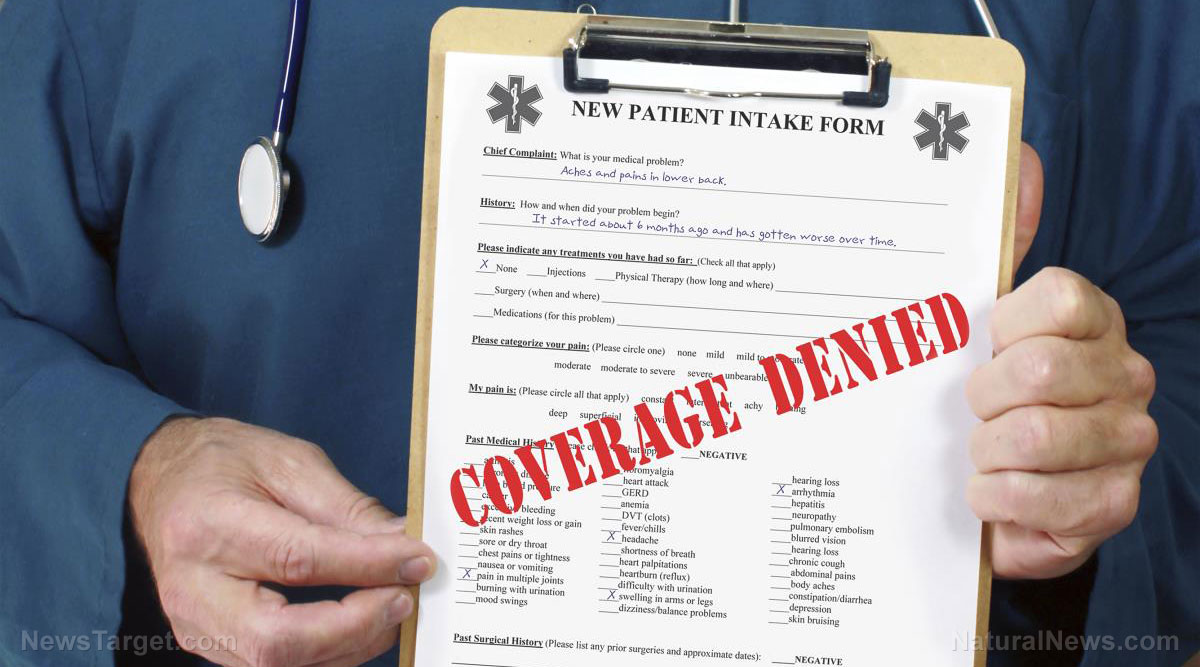 Parler
Parler Gab
Gab
How healthy was Switzerland in 2020?
Beck addressed the question "How healthy was Switzerland in 2020?" in a video presentation – with the background of his analysis coming from the 2022 Helsana report and the figures from the "official" health survey the BfS published on Nov. 3. The video begins by pointing out that the BfS conducts its health survey every five years. The health economist commented: "What is surprising is that the BfS published statistics in its database with detailed information about the health survey of Swiss citizens were deleted a few days after [they were released]." Before the data was unpublished, BfS gave the following statement regarding its 2022 health survey: "In 2022, 85 percent of the Swiss population aged 15 and over felt healthy and 83 percent felt happy. At the same time, more than a third live with a permanent health problem. Psychological stress has increased compared to 2017. The 15 to 24 year old age group is particularly affected, especially young women." However, this assessment by the BfS did not match the data it published. (Related: Insurance data confirms sharp increase in "sudden deaths" following COVID jab rollout.) The deleted health survey results were responses to the question "Have you ever had one of the following illnesses or health problems in your life?" with heart attack, stroke and cancer included in the listed disease. A tally of the responses showed that:- 170,000 people said they had a heart attack – from 33,339 in 2017 (an increase of more than 19 percent)
- 124,515 people said they had a stroke – from 27,584 in 2017 (an increase of more than 22 percent)
- 344,166 people said they had cancer – from 116,603 in 2017 (an increase of almost 34 percent)
Was the BfS trying to cover up COVID-19 vaccine injuries?
Following the unpublishing of its 2022 health statistics, the BfS justified its action by simply stating that "the surveys from 2017 and 2022 are not comparable." According to Beck, this simple admission without further explanation "does not help strengthen trust in the BfS" because the numbers "could reflect the negative effects of the coronavirus vaccinations. And it doesn't make a good impression if the office first publishes such data and then deletes it." "If you have such a serious mistake, then it would be desirable for the mistake to be better communicated," said Beck. Beck's video, where he explains his analysis, was published in German and had no English subtitles. However, Transition News has published an article on Beck's video, which is also in German but can be translated into English using an online translation tool. Visit VaccineDamage.news for more stories about the dangers of COVID-19 vaccines. Watch the following video to learn about Swiss health insurance: Explaining how it works, the costs and how to pick your policy. This video is from the Daily Videos channel on Brighteon.com.More related stories:
HEALTH INSURANCE could be outlawed for the unvaccinated in Illinois. Travel insurance industry launches new scheme to exploit irrational climate change fear among travelers. Farmers Insurance lays off 2,400 employees in the name of "long-term profitability." Cigna Healthcare used AI to deny hundreds of thousands of valid insurance claims, lawsuit alleges. Sources include: Expose-News.com Transition-News.org Brighteon.comThe Palestinians were right all along: Netanyahu wants them completely expelled from the region
By Kevin Hughes // Share
Xfinity notifies customers of data breach due to “software vulnerability”
By Zoey Sky // Share
Toyota announces recall of 1.12 million cars over potential airbag issues
By Zoey Sky // Share
Reuters blames CLIMATE CHANGE for Christmas Day massacre of Christians by Muslims in Nigeria
By Kevin Hughes // Share
‘Experts’ say new COVID strain will cause global ‘heart failure pandemic’
By News Editors // Share
Governments continue to obscure COVID-19 vaccine data amid rising concerns over excess deaths
By patricklewis // Share
Tech giant Microsoft backs EXTINCTION with its support of carbon capture programs
By ramontomeydw // Share
Germany to resume arms exports to Israel despite repeated ceasefire violations
By isabelle // Share










